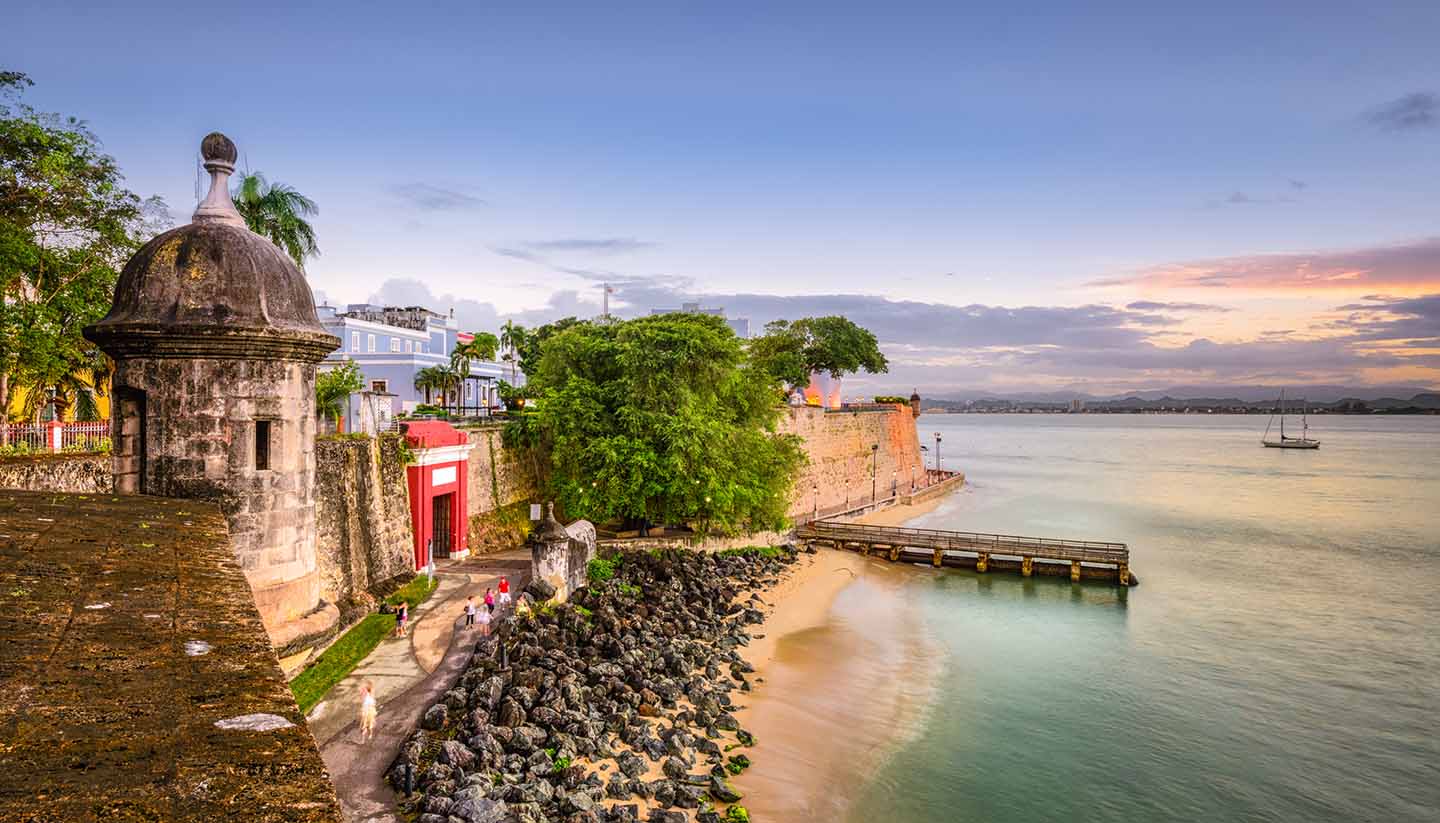Puerto Rico History, Language and Culture
History of Puerto Rico
Puerto Rico was first inhabited in around 3,000 BC. When Columbus landed in 1493 on his second voyage to the New World, the island’s inhabitants were the Tainos, Arawak people originating from South America. Claiming the territory on behalf of the Spanish Crown, Ponce de Leon governed Puerto Rico from 1508.
Puerto Rico was eventually ceded to the USA in 1898 at the end of the Spanish-American War. In Guanica, on Puerto Rico's southern coast, you can see a monument to the spot where ‘invading’ US troops landed during the war.
Puerto Ricans were granted US citizenship in 1917 and in 1952 the island became a self-governing Commonwealth in association with the USA. Although seen by many as a political compromise, in practice, this gives Puerto Ricans an American passport and makes them eligible for military draft but they do not pay US federal taxes and cannot vote in US elections.
Their status remains one of Puerto Ricans most contentious issues. Of the main political parties, the Partido Popular Democrático (PPD) is broadly in favour of the existing Commonwealth status, while the Partido Nuevo Progresista (PNP) supports full state membership. A third party, Partido Independentista Puertorriqueño (PIP) supports independence.
In December 1998, the third referendum in 30 years was held on the issue: voters were asked whether they wished Puerto Rico to become the 51st state of the USA, become independent, enter a compact of Free Association (similar to that which operates in a number of Pacific micro-territories) or retain the status quo. By a narrow majority, the vote for the status quo won. A further referendum in August 2012 resulted in a vote for US statehood.
However, the country remains in limbo, chiefly because the US Congress makes the final decision when it comes to admitting new states and, despite heavy lobbying, it has yet to accept Puerto Rico as one of the United States of America.
Did you know?
• The piña colada was invented in Puerto Rico (with the honour claimed by two San Juan bar men) and has been the national beverage since 1978.
• Zuleyka Rivera Mendoza, a former actress from Puerto Rico, was crowned Miss Universe in 2006, the island’s fifth winner of the title.
• Cockfighting, outlawed in most other countries, is hugely popular in Puerto Rico – it draws large crowds and is sometimes televised.
• The world’s largest single-lens telescope is on Puerto Rico, at the Arecibo Observatory, in the northwest of the island.
Puerto Rico Culture
Religion in Puerto Rico
Roman Catholic 85%; the remainder are Protestant and Jewish. Syncretic practices such as Santeria often exist alongside formal religion in devotees' personal expressions of faith.
Social Conventions in Puerto Rico
Handshaking is the customary form of greeting among acquaintances. Casual dress is acceptable, but shorts should not be worn in hotel dining rooms or casinos, where formal dress is required after 2000. Spanish and American manners and conventions exist side by side on the island. Some hotels require formal dress.
Language in Puerto Rico
Spanish and English are the official languages.


